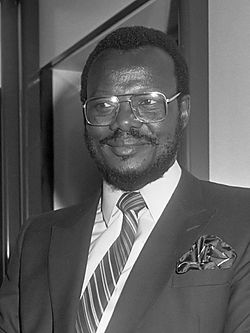This Day in History: March 2, 1994
Additional Date: March 2, 1994
The transition in South Africa from Apartheid regime to democratic dispensation was not easily achieved. The period was characterised by demands and counter demands from political parties on a wide variety of issues. The African National Congress (ANC), Inkatha Freedom Party (IFP) and the South African government became the primary role players in the deliberation process. The ANC and IFP leaders, Nelson Mandela and Mangosuthu Buthelezi respectively, led delegations from their organisations in discussing their constitutional differences.
At this time the IFP, numerically the third largest political organisation in the country, was threatening to boycott the first democratic elections scheduled for 26 to 28 April 1994. There had been a walkout and threats of further withdrawal by IFP, all during a climate of vicious and escalating political violence in Natal and the Transvaal. On 1 March 1994 a meeting was held in Durban between the ANC and IFP in an effort to find a way forward together. Here Buthelezi (IFP) demanded greater powers for the Transvaal and KwaZulu-Natal (IFP power bases) in the proposed interim government. With the ANC firmly opposing this, negotiations deadlocked.
The IFP then proposed international mediation. On 2 March 1994 a breakthrough agreement was achieved on this. Subsequently the IFP agreed to provisionally register for elections in terms of the Electoral Act. However, the IFP concession was not accepted by its Youth Brigade, which was holding out for all IFP demands to be met unconditionally. It warned of a resistance campaign, creating the tacit understanding that this would involve yet more violence. Such a stance, amid already heightened political tensions, and so close to the election, was perceived as a very real threat to the election process.
Nevertheless, the then State President,F.W. de Klerk, accepted the IFP decision. While negotiations between these two leaders were underway, horrific violence between supporters of the ANC and IFP continued to escalate.
